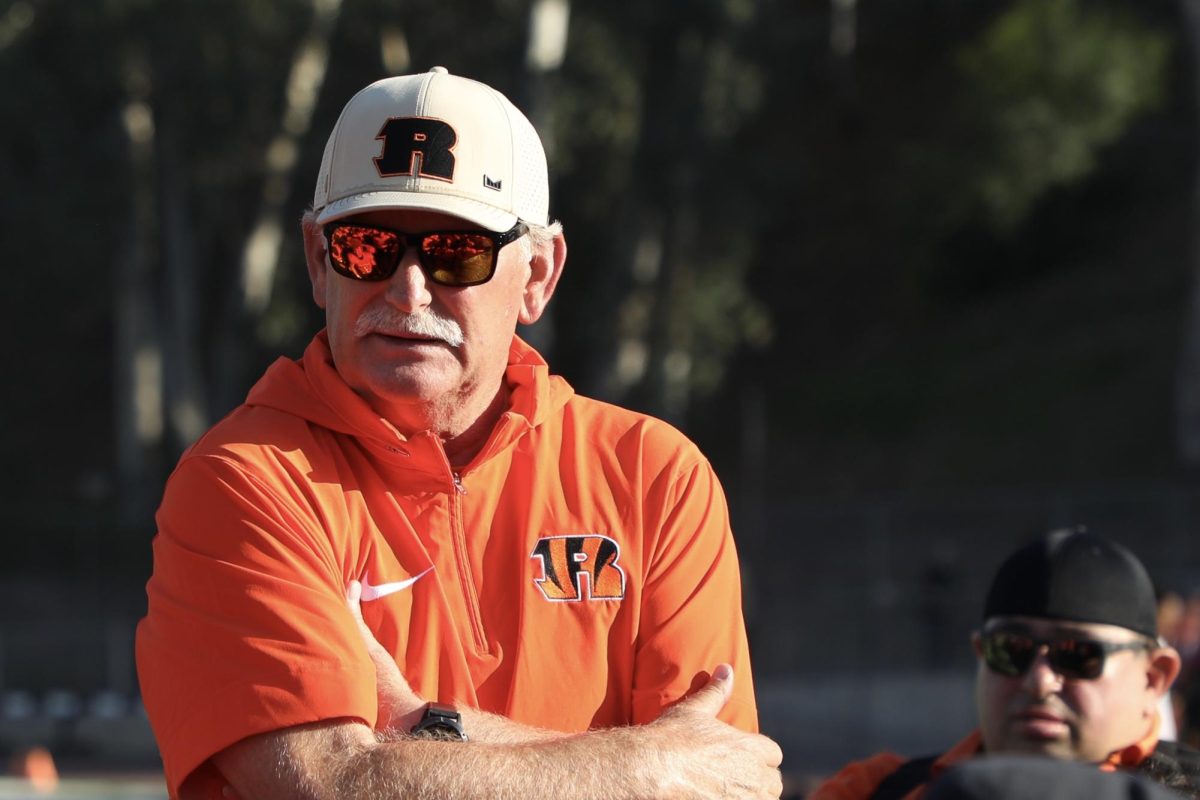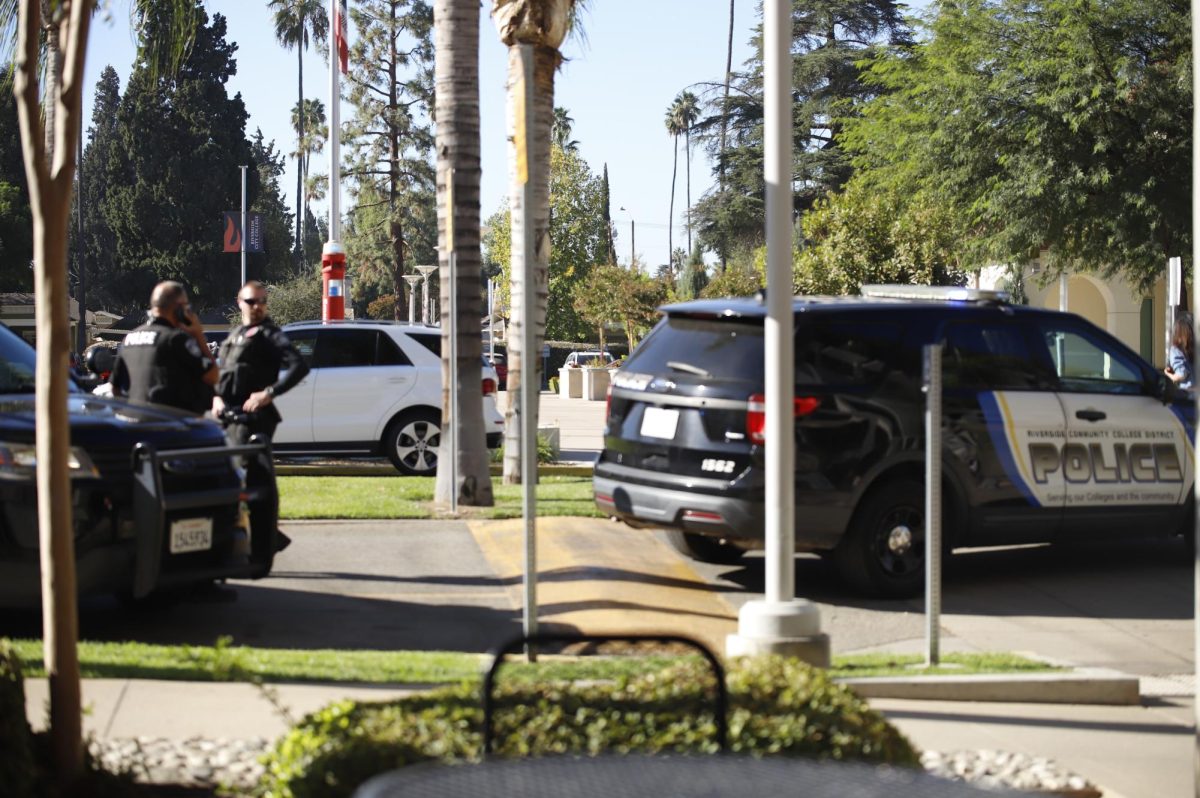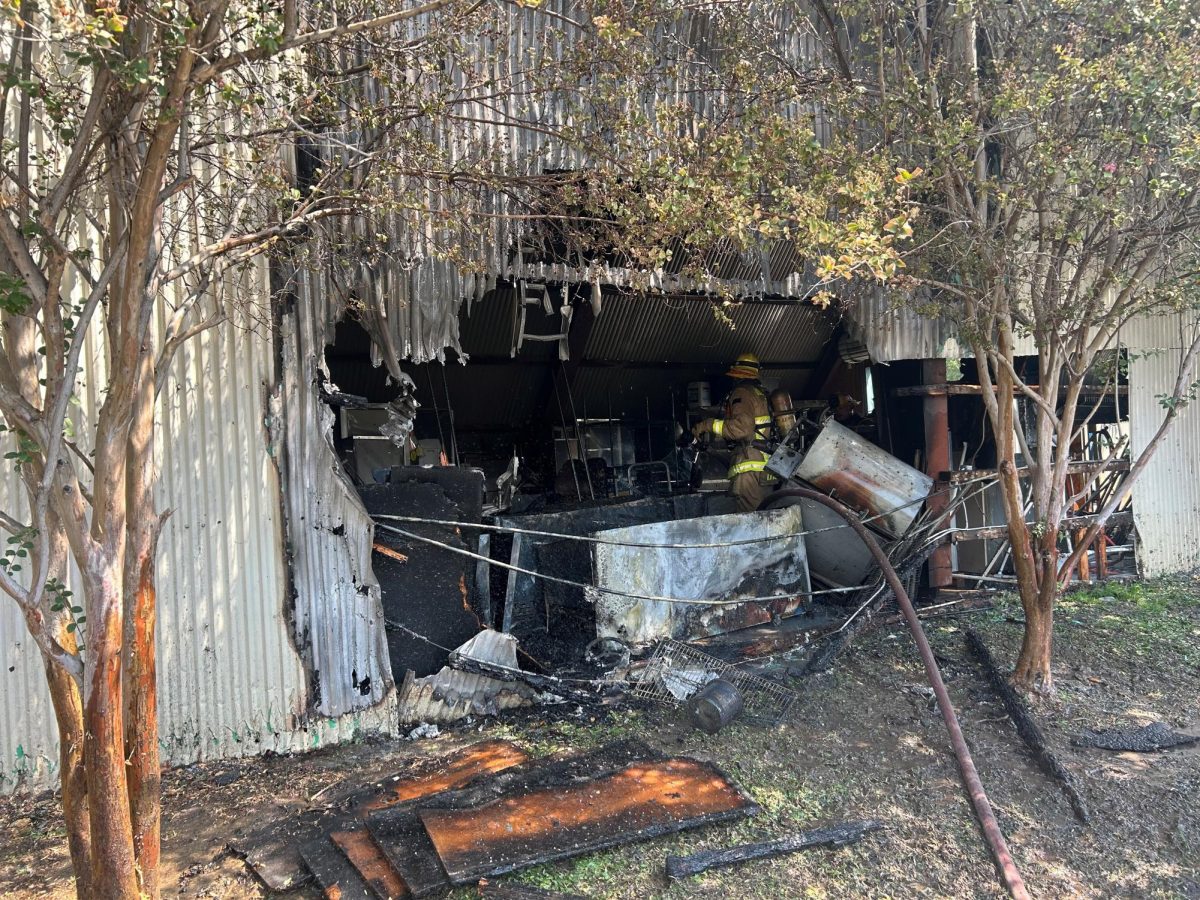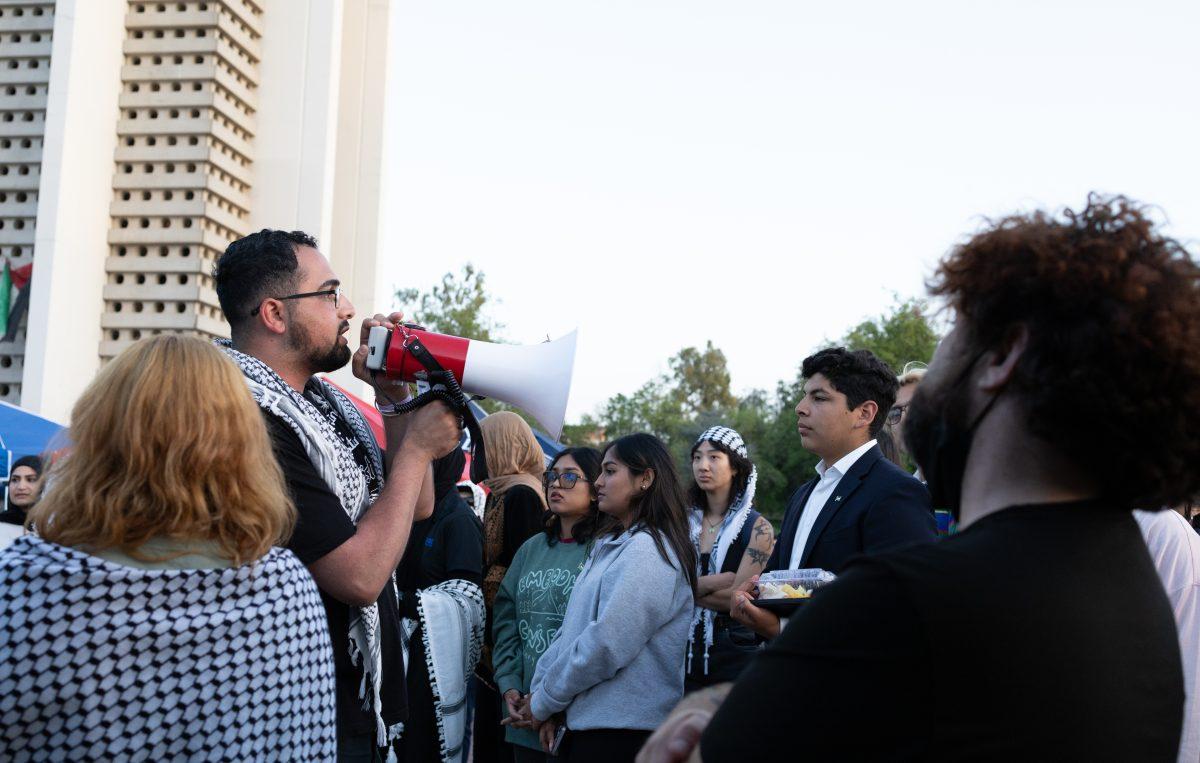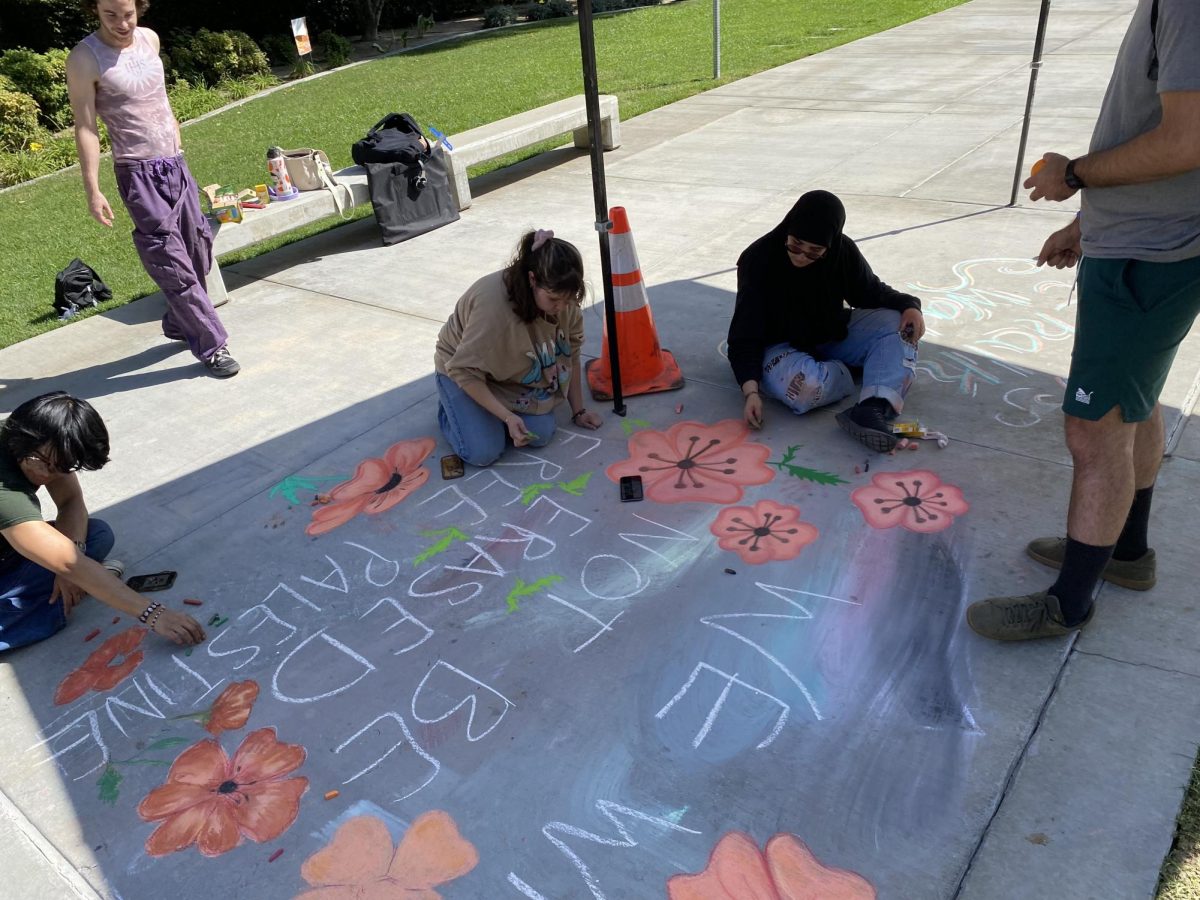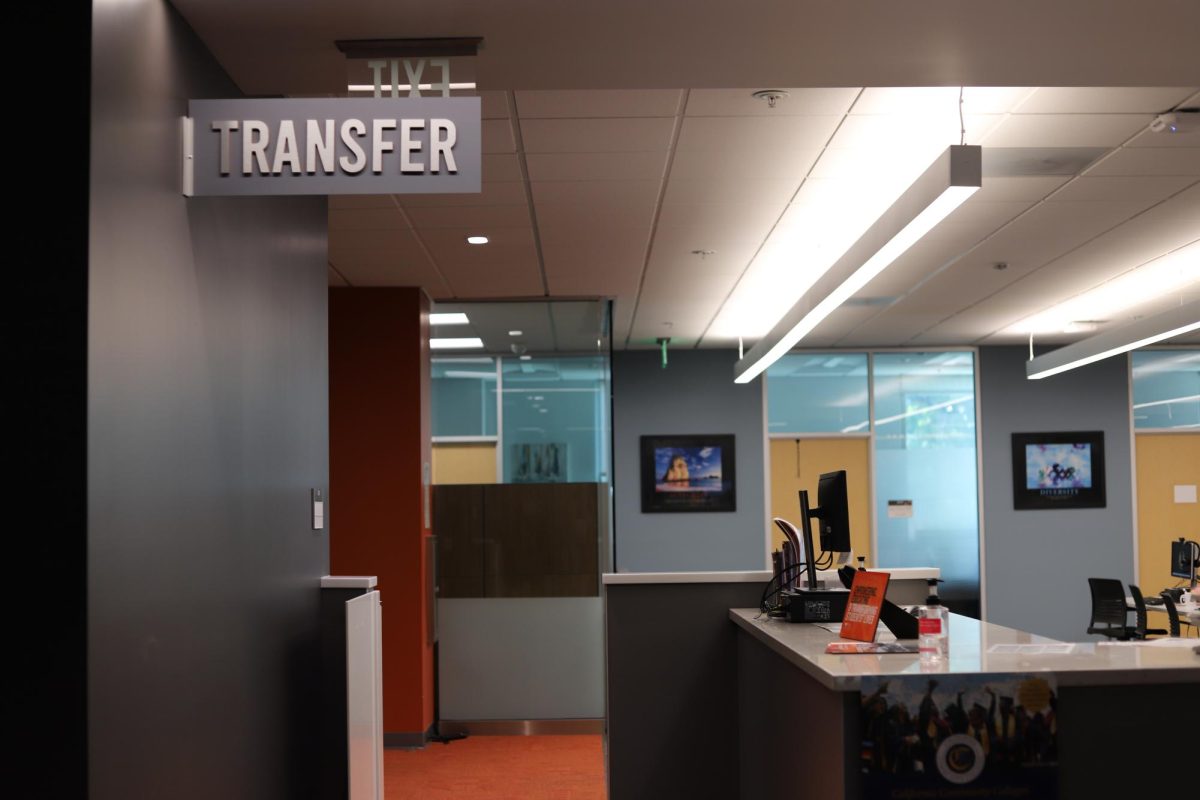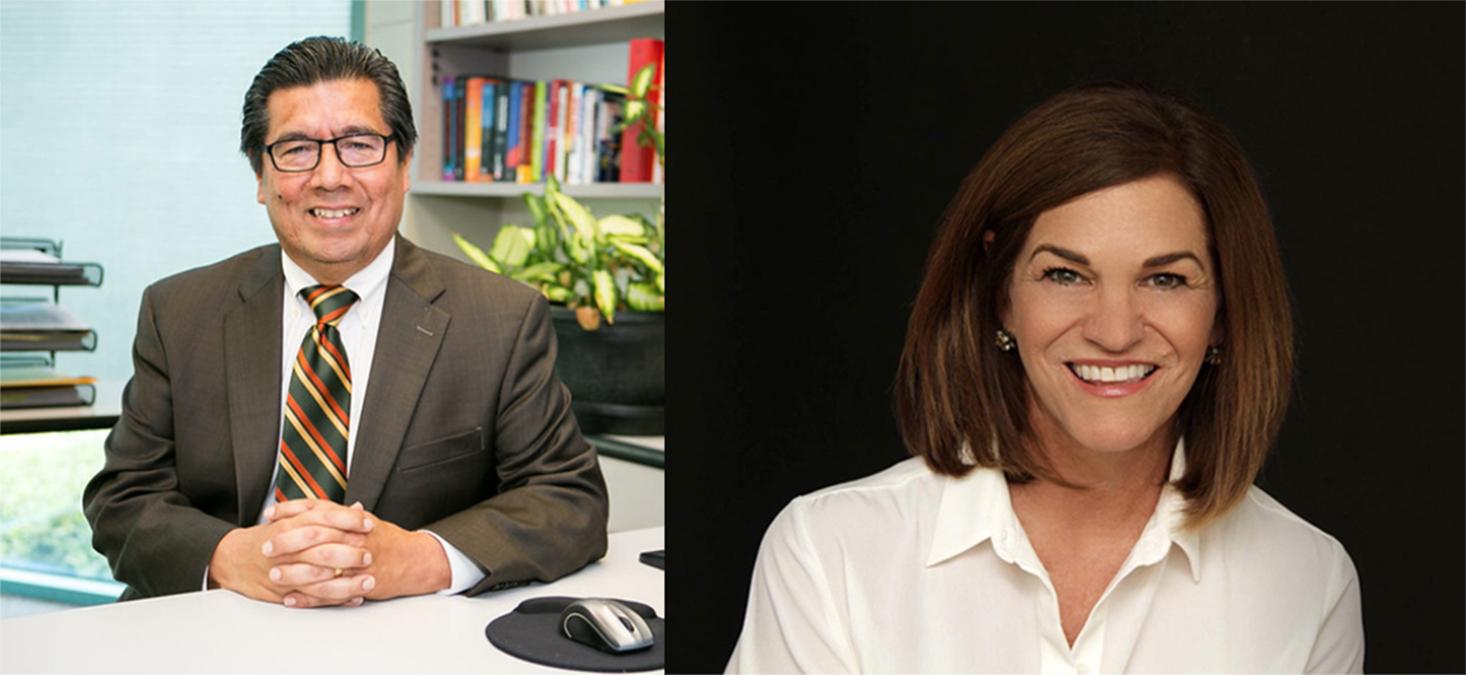
By Erik Galicia
Riverside voters will choose between a city council member and a school board official when they elect their next mayor.
Andy Melendrez, Ward 2 representative, and Patricia Lock Dawson, Riverside Unified School District trustee, advanced to a runoff election after beating four other candidates during the city’s initial mayoral election March 3. Melendrez led that race with 43.47% of the vote, while Dawson came in second with 35.76% of the vote, according to the city clerk.
Both candidates aim to address homelessness through a regional approach that urges neighboring cities to stop exporting people into Riverside. They argue that many homeless people come to the city for social services and end up staying due to a lack of help in their hometowns.
“The ultimate goal is to get whoever is using these services back in an environment where they’re supported and helped,” Dawson said via Zoom on Oct. 6.
She said she will implement agreements that allow homeless people to seek help in their own cities. Her plan also aims for continued partnerships with nonprofits and the faith community to develop better homelessness prevention and exit strategies, such as job training programs.
The RUSD trustee said her leadership of a three-county coalition that secured $65 million in state funding for the Santa Ana River trail over the past 15 years is an example of the type of management required of a regional approach to homelessness.
Melendrez’s plan calls for Riverside to teach neighboring areas how to provide aid by applying for grants, but the council member questioned the effectiveness of nonprofits such as Path of Life Ministries in handling the issue.
He argued Path of Life was partly responsible for the Skid Row-like encampment on Massachusetts Avenue and that his advocacy helped secure the CARES Act funding that allowed for the recent clearing of the area.
“We rented blocks of hotel rooms so that the homeless who were living there were offered temporary housing,” Melendrez said by phone Oct. 7. “While they were in temporary housing, we reached out to them with mental health services, connected them with family. That’s the way homeless services should operate.”
The candidates acknowledged the reality that COVID-19 will impact life in Riverside for an extended period of time. Dawson said that, under her leadership, the city will keep cases and deaths down and see the return of a thriving economy.
“We have taken a huge hit in tax revenues because of the closures of so many businesses,” she said. “We need to have that stuff come back to help the city with economic recovery, but we need to find a creative path forward.”
Dawson proposed increased outdoor dining as a means to help businesses flourish.
Along with outdoor dining, Melendrez said businesses will increase their utilization of apps and other technology to survive and continue to sell. Minimal face-to-face contact, smaller retail spaces and increased online sales will characterize business in Riverside a year from now, the council member said.
The candidates have sparred over the state of Riverside’s budget and looming pension liabilities. The pension obligations, reported at $531.6 million in 2018, have caused worry over a potential insolvency in the coming years.
Riverside is using pension obligation bonds to pay its unfunded liabilities, a tactic Dawson likened to using one credit card to pay off another. She has claimed the city is facing bankruptcy and argued balancing Riverside’s budget in the way the school district’s is would be a better approach.
According to Dawson, RUSD set aside a trust fund to meet pension obligations annually to keep them from growing over time. The school district also offered employees compensation that does not add to pension debt.
“When you give somebody a cash increase in their salary, that increases your pension debt,” she said. “If you give them no-out-of-pocket healthcare, that doesn’t add to your pension debt. That’s still a huge benefit.”
Dawson also proposed refinancing existing debt and making appropriate cuts after negotiations with the community.
Melendrez argued the idea that Riverside is going broke is based on outdated reports.
“We’re not going into bankruptcy,” he said. “Obviously we have to watch every nickel and dime we spend, but we are in good shape.”
The council member went on to say pension obligation bonds have worked in the past and, although it will take time, the debt will drop.
Dawson said she intends to tap into green technology to attract high-paying jobs to the area. The city hosts a California Air Resources Board facility, as well as the Center for Environmental Research and Technology at UC Riverside.
“We have the opportunity to brand Riverside as the city that you come to for green jobs, that you invest in if you’re a green industry,” she said.
Melendrez highlighted the potential of the area’s legal and medical industries in attracting higher-paying jobs to Riverside. The council member questioned why, with all of the quality hospitals and higher education institutions in the area, Riverside still does not have a children’s hospital or a law school.
“The services they have in Los Angeles, Orange County and San Diego, we should have those here,” he said. “We’re a big enough area.”
Both candidates argued Riverside is addressing the issue of police-community relations and said public safety is not an area where they would make cuts.
Melendrez said voters decided against cutting police programs when they ratified Measure Z in 2016.
According to Riverside Police Department officer Ryan Railsback, the number of officers employed by the city fluctuates from week to week due to retirements. Riverside employed 379 officers as of Oct. 13. Measure Z brought about a commitment to raise that number to 405 in the next few years.
The council member argued the city’s policing went through reform as a result of the death of Tyisha Miller, a 19-year-old Black woman who was shot by officers at a Riverside gas station in 1998.
He said that, as chair of the Safety Committee in 2006, he pushed for retraining of officers after the shooting of Lee Deante Brown, 30, at the Welcome Inn on University Avenue. It was found Brown was off his medication at the time. The retraining intended to teach police the difference between someone under the influence and someone in need of medication.
“I saw the transition being made, but it’s important to keep improving,” Melendrez said.
Dawson argued more community policing would ensure police are kept out of situations where they are not necessary. She also pointed to the work of the Riverside Coalition for Police Accountability, a group that aims to mend the relationship between law enforcement and the community, as an example of what the city is doing to address the matter.
The election will be held Nov. 3.

